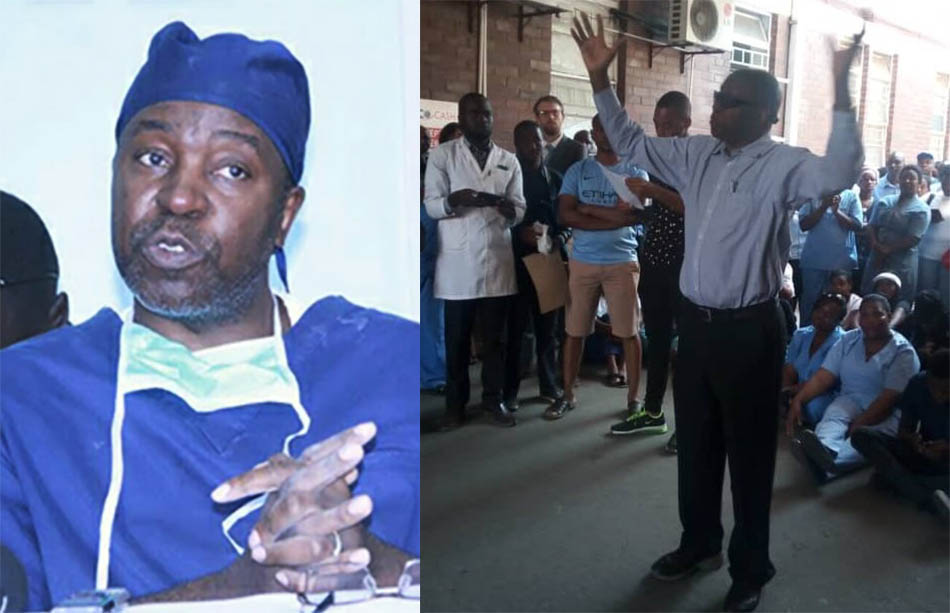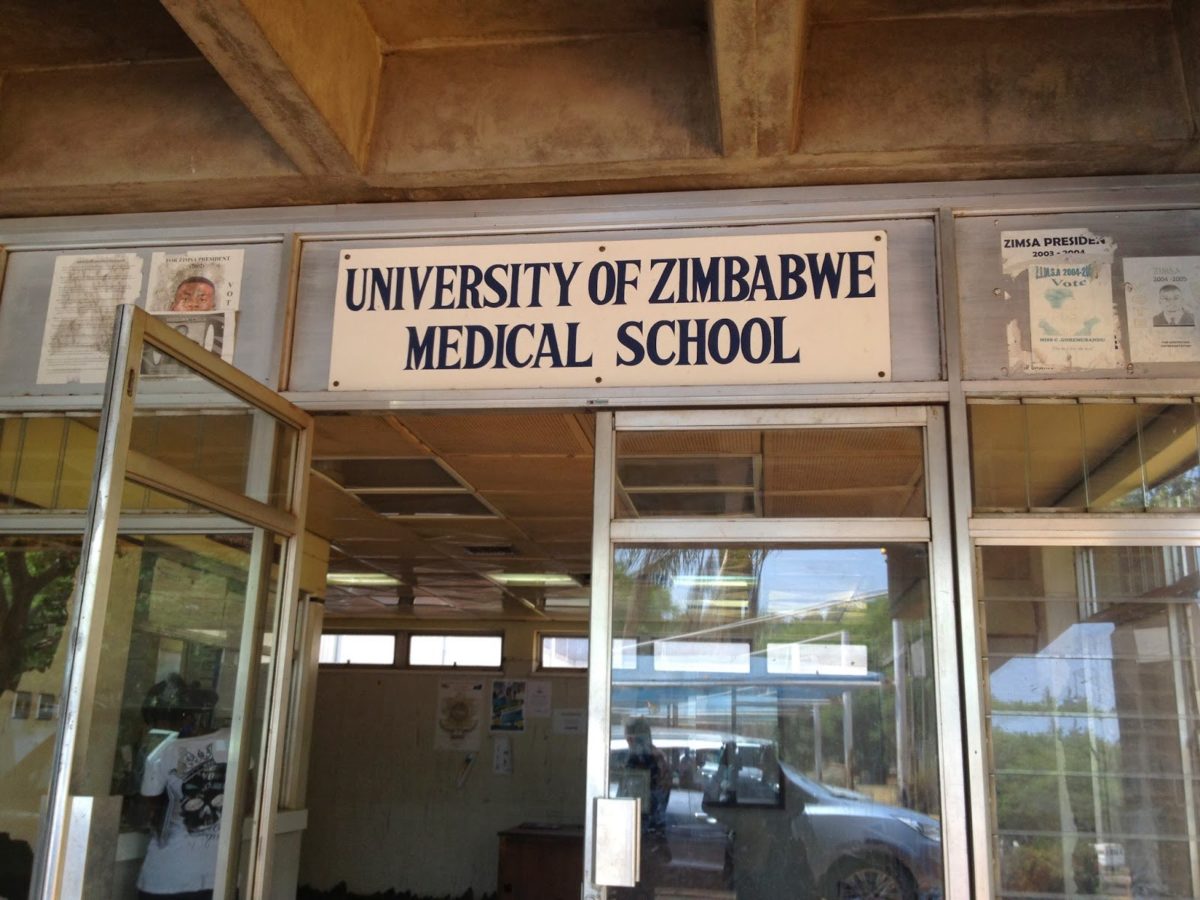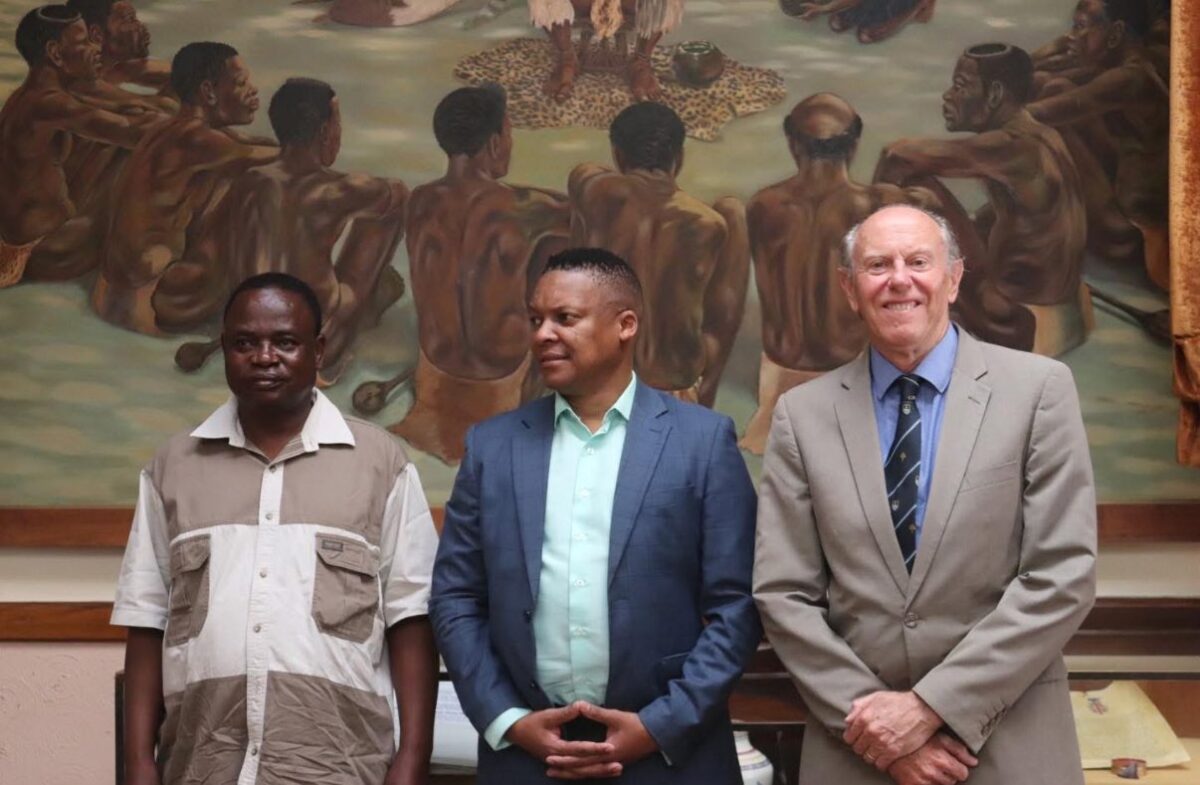HARARE – The University of Zimbabwe (UZ) buckled under pressure on Wednesday and reversed a controversial decision to suspend a leading surgeon and terminate the contract of another for allegedly inciting doctors to boycott work.
The UZ went back on its decision after other lecturers at its Medical School threatened to stop taking classes.
The Zimbabwe Medical Association (ZiMA), which earlier on Wednesday described the university’s actions as an “unprecedented assault on the profession”, held two meetings with the UZ vice chancellor Professor Paul Mapfumo, one of which was attended by the suspended paediatric surgeon Dr Bothwell Mbuwayesango and terminated senior cardiothoracic surgeon, Dr David Chimuka.
“Following these deliberations and further submissions by representatives of the Surgical Department of the University of Zimbabwe, the parties resolved that… the university reconsiders its action in light of further information availed and submissions made during the discussions,” a joint statement signed by Mapfumo and ZiMA secretary general Dr Sacrifice Chirisa said.
Mapfumo signed a letter on Tuesday suspending Dr Mbuwayesango, famed for leading a team that separated conjoined twins in 2014 during an eight-hour operation at Harare Hospital.
Dr Mbuwayesango was accused of “inciting and/or taking part in the unlawful collective job action or strike by students or staff.”
In another letter to Dr Chimuka, Mapfumo said he was terminating his post-retirement contract “to reclaim the position in line with the new strategic thrust.”
Dr Chimuka, according to ZiMA, “had resuscitated our open heart programme until the government allowed the supplies to run out in 2018.”
The Zimbabwe Hospital Doctors Association (ZHDA), whose 1,800 members have not been attending to patients since September 3 over demands to have their salaries indexed to the United States dollar, had warned that “the training of surgeons will be undermined by this poorly considered move.”

Doctors defied a government order to resume work on Monday and asked the United Nations and private businesses to help fund their return to the wards.
The doctors are in the second month of a strike over salaries which have dwindled to less than US$100 per month in some cases as a result of galloping inflation.
They say their pay has lost value by at least 1,500 percent.
The ZHDA said they have used up their savings by “subsidising the employer” for them to just report for work.
Negotiations with the government have been deadlocked as the doctors rejected a 60 percent pay increase.
Health Minister Obadiah Moyo at the weekend ordered the doctors to return to work, warning them with unspecified disciplinary action if they did not comply.
The government has adopted a ham-fisted response to the strike. Last month, police tried to stop the doctors from marching to parliament, until a court allowed the protest.
The leader of the doctors’ union Peter Magombeyi was last month abducted by suspected state agents, only to be released five days later after pressure from his colleagues.
The government tried to block him from travelling to neighbouring South Africa for treatment after local doctors recommended further medical assessment.
He was only allowed to leave following another court order.
The striking doctors have appealed to the World Health Organization (WHO), local businesses, churches and NGOs to help raise funding to supplement their wages.
“Lives are being lost and there is need to urgently raise resources to supplement… the salaries of 1,800 government-employed doctors,” they said.
Should the UN heed the doctors’ call, it will not be the first time it has supported health personnel in the crisis-ridden country.
Unicef ran a so-called Health Transition Fund, a multi-donor pooled fund for four years from 2011, paying out allowances to augment medical practitioners’ salaries.
















